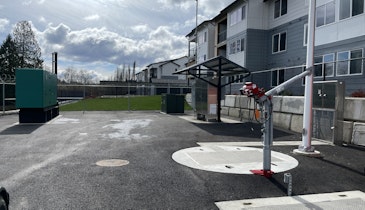Interested in Trucks?
Get Trucks articles, news and videos right in your inbox! Sign up now.
Trucks + Get AlertsThe owner of a Longview, Wash., septic pumping company has been sentenced to 27 months in prison for illegally dumping more than 2 million gallons of septage into the public sewer system. Ray Caldwell, owner of All-Out Sewer and Drain Service, was also fined $250,000 for violations of the Clean Water Act, mail fraud, and making false statements.
An indictment alleging 25 violations of the Clean Water Act accused Caldwell of cutting a hole into a city sewer pipe behind his building and pumping septic waste from his trucks and a storage tank into the pipe. He was viewed in the act by EPA agents staking out the business and was also seen on video seized from the company’s outdoor surveillance system.
Video series educates Delaware homeowners
A series of three videos is helping to educate homeowners about the importance of properly maintaining their septic systems. The Divisions of Water and Watershed Services of the Delaware Department of Natural Resources and Environmental Control released the videos online in April. Along with an overview of septic systems using working models, the videos cover the different types of risks and failures common to septic systems and maintenance tips for homeowners. There is also information about the state’s Septic Rehabilitation Loan Program.
In the series, Hilary Valentine, head of Delaware Technical and Community College’s Environmental Training Center, takes viewers on a tour of the school’s onsite systems training lab to learn about the many different types of septic systems, and details the progression of improved technology over the years.
Check out the videos here: www.youtube.com/user/DelawareDNREC.
Two bills delay land application in Florida
Two bills that would delay a ban on the land spreading of septage are making their way through the Florida legislature. Land application was effectively banned by legislation in 2010 effective January 1, 2016. Environmental and conservation groups originally opposed the bills delaying the law, but withdrew their objections when they were amended to delay the ban by one year rather than four. The delay will be used to study waste disposal options for pumpers.
Two other bills that would allow building owners to connect their septic systems to the sanitary sewer system are moving through the legislature without opposition. Under the proposals, septic systems could be connected to sewer systems at less than the full cost of a sewer hook-up. Currently, a septic system must be abandoned if a building is connected to the sewer system.
Alaska receives $23K grant for septic work
An Alaska Clean Water Actions grant of $23,450 will be used to establish local cooperatives to reduce the cost of septic inspection and service. The Mat-Su Resource Conservation Development Council is working with homeowners, engineers, and onsite professionals to promote the concept of sharing reduced costs when one street with several homes on septic systems can be inspected and serviced at the same time.
Several companies have expressed interest in offering discounted rates for such a cooperative. The project will include public education to raise awareness of how septic systems can impact water quality and how homeowners can reduce such impacts.
The grant was one of 13 across the state to improve Alaska’s water quality issued through a partnership between the departments of Environmental Conservation, Fish & Game, and Natural Resources.
North Carolina attempts to create septic repair program
Due to the growing number of aging septic systems, Durham County Department of Public Health officials want to work with local banks and county commissioners to create a program to subsidize septic repair and replacement. More than 3,000 septic systems in rural Durham are more than 30 years old, putting them at risk for failure.
The Health Department issues permits for most septic systems, and when it knows of failures sometimes has to seek a court order requiring repairs, which can cost up to $35,000. In extreme cases, the owners must vacate the property if they can’t afford the cost.






